The power of a song, the life of a maestro
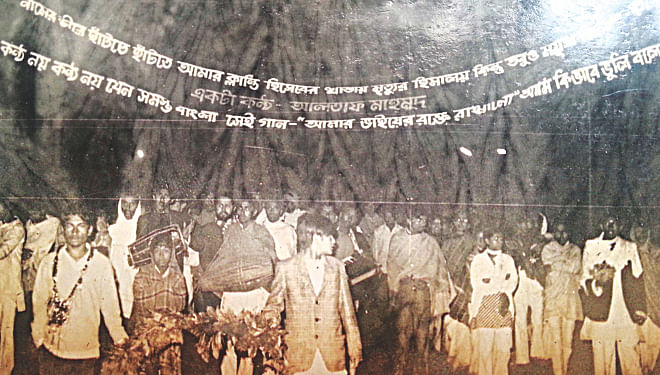
The month of February is marked with the heroic tales of patriots laying down lives for our mother tongue in 1952. The month also has everyone singing the immortal song Amaar bhaiyer rokte rangano ekushey February, aami ki bhulite paari, written by Abdul Gaffar Chowdhury and composed by Altaf Mahmud.
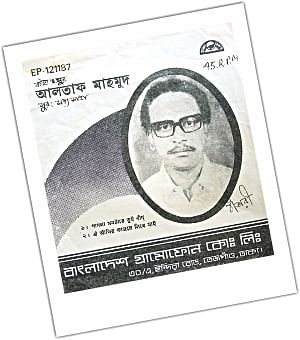
Altaf Mahmud, a born warrior, knew the power of music. His songs became part of the struggle of the people and the country. Like many artistes, intellectuals and nation builders, Altaf Mahmud was picked up by the Pakistani army in 1971. His body was never found.
Mahmud's widow Sara and daughter Shawan share stories about the great man, whenever they get a chance to. "We are proud of him," says Shawan. "My father was truly the son of this soil."
Sara Ara Mahmud was in her late teens when she married Altaf Mahmud. "Amaar bhaiyer rokte rangano was written and composed before we got married," says the 65-year-old, endearingly referred to as Jhinu. "But I was always a part of the group of people who would go barefoot to the probhat ferry on February 21, every year, and would sing this song with everybody."
Even today, singing this song unites people of all walks of life in Bangladesh, and is a matter of great pride for all. Back in the time of Mahmud, however, groups were probably fewer and crowds smaller, but the feeling of pride while singing Amaar bhaiyer rokte rangano was unparalleled.
Last week, on a late night musical live on Desh TV, viewers were pleasantly surprised and deeply touched, when Shawan Mahmud recreated the song with the band Obscure. "I was quite apprehensive about singing Amar bhaiyer rokte rangano with the band, actually!" admits Shawan.
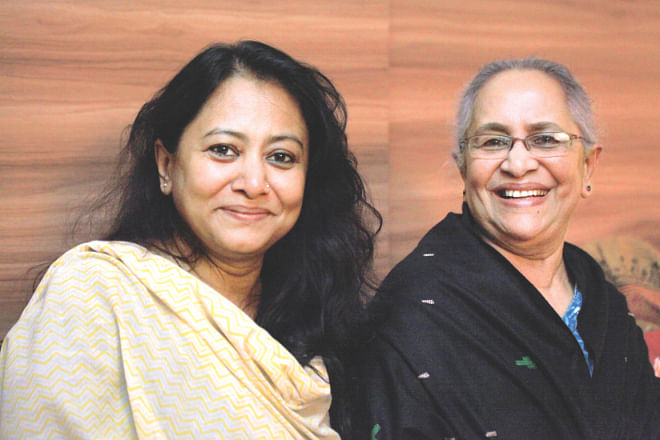
"There is still a huge bunch who believes that the song should remain the way it is. But I wanted to recreate it, add in modern interludes and make it sound more new-age. To date, I am receiving positive responses from all over!" Obscure plans to bring out the new version of the song in their next album.
"I am quite open about recreating my father's songs, so that the younger generation can listen to them, understand the music and learn about the composer himself," says Shawan.
"The first time I asked Obscure to do Amaar bhaiyer rokte rangano, they literally got scared!" laughs Shawan. "The band practised very hard so that nothing could go amiss, regarding the song. While recreating the song, both Obscure and I made sure that the tune was not distorted or changed in any way and kept the original composition in mind."
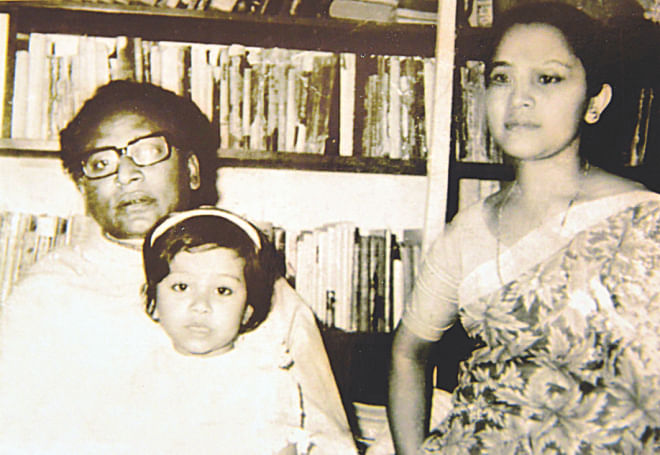
Shawan says she was privileged enough to study music at Shaheed Altaf Mahmud Sangeet Bidya Niketan, but never pursued music as a career. "I have always been a singer of Gono Sangeet (mass song), which is why I never attempted to pursue it commercially," she explains. "Amaar bhaiyer rokte rangano is a very modern song, divided into four long stanzas. The tunes and scales are very complex and contemporary. In fact, everyone is taught the first 6-8 lines of the song, but many are not aware of the fact that the song is more than 16-18 lines!"
According to Sara, as a music director Altaf Mahmud was never the restless kind. "He was always calm and would compose in a very relaxed manner," she remembers. "He would sit with his harmonium and work in silence, occasionally asking for a suggestion or two. The only time I had seen him restless was in 1971."
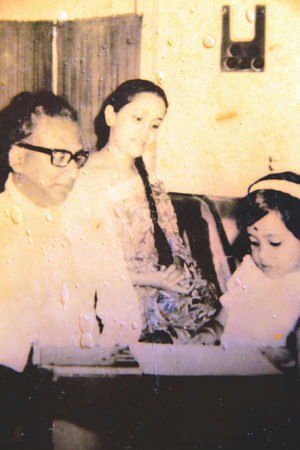
"Right after he was done composing a song, he would ask everyone to listen," she says. "My siblings would be there too and we would all surround him to listen to his latest creations. Altaf would play on the harmonium and sing us the composition. He would play us different tunes, discuss styles and also ask our opinions on what kind of melody would suit the lyrics. I remember, we would all pitch in with ideas and had lots of inputs for his compositions."
Altaf Mahmud was a rebel of sorts, according to Sara, and had left home after a major fall out with his father. "Disagreements between fathers and sons are not unique to any generation," smiles Sara. "Altaf left his home for Dhaka, with nothing but a kaantha stitched by his mother with her shari and a violin. In fact, Altaf used to give free violin lessons to many when Chhayanaut had begun its journey. Such was his love for music."
After marrying Sara, however, Mahmud felt the need to settle down and establish himself as a music director. He created melodies for both Bangla and Urdu movies. "He was always biased towards composing more of Bangla melodies, however," confides Sara. "In fact, the Bangla movie Behula, where Altaf worked as a music director, was a big hit back then in Pakistan, and it surpassed even Urdu movies."
Altaf Mahmud loved people around him and he would often be seen playing ludo and carrom, back in the days, says Sara. "Back then, so many rehearsals of radio musicals and outdoor shows would take place at our place," reminisces Sara. "Our house used to be filled with people always. Altaf liked music, poetry and discussing issues with friends, whenever he had the chance to."

Shawan was hardly four-year-old when she lost her father. "My memory of him composing, playing indoor games with friends, chitchatting with his comrades is vague," she says. "For the last five years, however, I have been studying my father closely -- through letters, books written by his friends, his songs and much more. I feel that I know him so much more now. I think I even look a little like him!" Recently, Shawan designed shahidaltafmahmud.com -- a website dedicated to Altaf Mahmud.
"I keep uploading old photographs, music, little bits of writing -- whatever I can find related to my father."
Photo Credit: shahidaltafmahmud.com (old pictures); Kazi Tahsin Agaz Apurbo (Shawan & Sara)

 For all latest news, follow The Daily Star's Google News channel.
For all latest news, follow The Daily Star's Google News channel. 


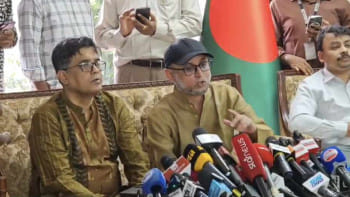
Comments